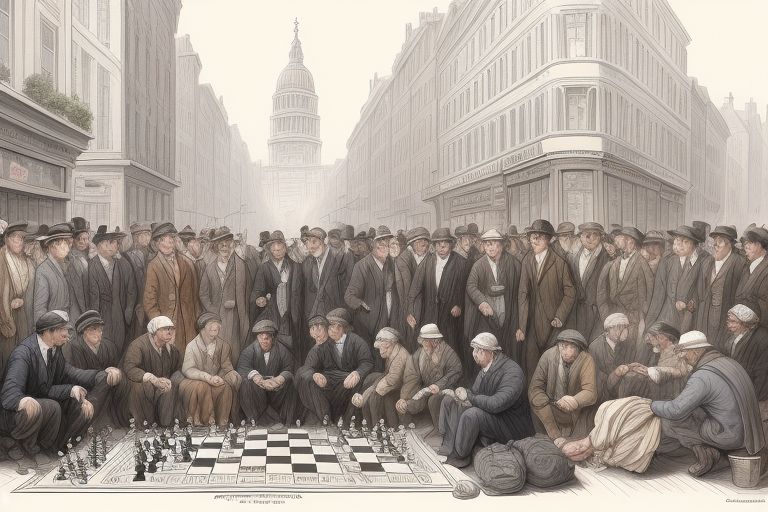<– Back to Introduction <– Human Incentives in General Terms

Incentives in Society by Class
Humans, for the most part, share the same basic incentives – survival, avoiding discomfort, and growth. We avoid pain. As you move up the food chain of human intelligence, growth becomes far more relevant and diverse in its scope. While people have ever more varying goals and situations, which drastically change personal incentives from one person to another, we can see generalizations across groups and individuals (which can also be grouped by type of person).
People can be in any situation out of their own careful planned actions, sheer luck, or horrible misfortune. They may not really had much opportunity to apply their abilities. They can be good or evil regardless of their class, with all denominations in between.
Individuals for this exercise will be put into five groups: destitute, poor, middle class, wealthy, and super rich. I am not trying to bash or praise any group, only to generalize to discover what incentives diverse groups might have, and to further derive how they might interact with the environment.
Why Class Matters to Incentives
Why am I discussing the different classes of people this way and what does it have to do with the environment? It’s because we all make decisions that affect the environment based on our incentives and the options available to us.
If having an exhaust pipe hanging out the back of your motor vehicle were to become shameful and unstylish tomorrow, most people would not be able to switch immediately to something more “cool”. If it were to become less expensive, all things accounted for, in the long run to not burn fossil fuels for transportation immediately, many people would not be able to afford the switch (the poor to lower middle class), but many would invest (middle class to the rich) to see a return in the future and to be seen as “in style”.
Needs by Socioeconomic Class
Your class determines your wants and needs; your social standing in this world. People have different opportunities available to them depending on their lot in life. They also have different goals and responsibilities based on the simple fact of where they sit financially in society. The first, most clear examples that come to mind are the middle-class goals to get out of debt and the responsibility to go to work each day. The destitute might have the goal of collecting $20 buy “medicine” while the rich might aim to grow the market share of their company.
When you look at the different incentives for each class, you can come to the conclusion quite easily that the middle to lower classes spend most of their funds surviving and consuming goods that are available to them in the marketplace. They do not have the resources to make policies or start large businesses. Instead, it is the rich and super rich that get that privilege. They get to shape society by the government through lobbying, candidate funding and the marketplace through the consolidation of capital and investment.
For now, the rich and elite must share this planet with everyone else. Why would they not protect the environment their own communities? They do. The elite don’t live near us, they don’t vacation with the rest of the world, unless it is part of their job. You won’t see Bill Gates at a restaurant you go to anytime soon. Donald Trump only cares about pollution at his golf courses and other investment properties.
The ability of our modern economic system to centralize capital and power also has the capability to consolidate pollution and centralize clean environments. I’ll explain this topic in greater detail in the next chapter.
Continue to Poor, Rich and Middle Class –>
Buy Incentives and the Environment on Amazon



Comments are closed.